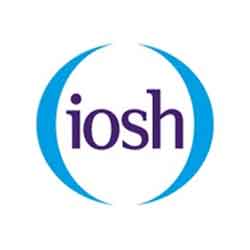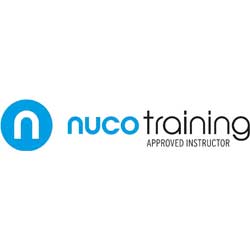Over 220,000 people hold a NEBOSH National General Certificate in Occupational Health and Safety. Why? Because it’s the gold standard in health and safety qualifications.
Thousands of leading experts and organisations have helped us update the most widely respected health and safety qualification of its kind in the world. This means that it’s designed to reflect the needs of today’s employer giving learners everything they need to know and do to make their workplace safer.
Relevant to every workplace, the NEBOSH National General Certificate is ideal for managers, supervisors and anybody with health and safety management responsibilities. It’s also perfect for those embarking on a health and safety career and gives you a stepping stone to success.
With in-depth focus on the things that matter, the NEBOSH National General Certificate covers:
- How to effectively manage health and safety
- How to identify and control common workplace hazards
- How to measure if you’ve been successful
- The UK’s key legal requirements
Trusted by many prestigious organisations it can help to:
- Minimise workplace injuries and illness
- Boost employee wellbeing
- Demonstrate your commitment to health and safety, which can win business.
Professional body recognition
Holders of the NEBOSH National General Certificate are entitled to:
Associate Membership (AIOSH) of the Institution of Occupational Safety and Health (IOSH). The qualification also meets the academic requirements for Technical Membership (Tech IOSH) of IOSH with appropriate experience. Associate Membership (AIIRSM) of the International Institute of Risk and Safety Management (IIRSM)
Maintaining professional standards
The NEBOSH National General Certificate in Occupational Health and Safety has been accredited and credit rated by the Scottish Qualifications Authority (SQA) Accreditation. It sits in the Scottish Credit and Qualifications Framework (SCQF) at SCQF Level 6 with 11 SCQF credit points.
SCQF Level 6 is comparable to RQF/CQFW Level 3 in England, Wales and Northern Ireland.
Entry requirements
There are no entry requirements for this qualification, however, it is important that learners have a suitable standard of English language in order to understand and articulate the concepts contained in the syllabus.
NEBOSH recommends that learners undertaking this qualification should reach a minimum standard of English equivalent to an International English Language Testing System (IELTS) score of 6.0 or higher in IELTS tests.
How long does it take?
The National General Certificate will involve a minimum of 68 taught hours and approximately 40 hours of private study and background reading.
It is possible for fast track learners to complete the qualification in 10 working days.
Cost
£1400 per student
NEBOSH Construction Certificate
NEBOSH Health and Safety Management for Construction (UK) is ideal for:
- Construction site managers
- Contracts managers
- Site workers with health and safety responsibilities
- Construction health and safety advisors
It also makes excellent continued professional development (CPD) for health and safety professionals working in other industries or looking to move into construction.
According to the Health and Safety Executive (HSE), the construction industry loses around 2 million working days each year due to workplace injury and work-related illness.
NEBOSH Health and Safety Management for Construction (UK) can help to:
- Minimise workplace injuries and illness
- Ensure you comply with Construction (Design and Management) Regulations 2015 (CDM)
- Understand the responsibilities of the six roles in the CDM regulations
- Boost employee wellbeing
- Demonstrate your commitment to health and safety, which can help win business
- Strengthen your health and safety culture
Course details
Learners will be better able to influence their on-site colleagues to work more safely; because they will gain the confidence and technical know-how to challenge unsafe behaviours and offer practical solutions.
Aligned to CDM regulations, NEBOSH Health and Safety Management for Construction (UK) is guided by legislation but focussed on best practice. The broad syllabus includes:
- CDM roles and responsibilities
- Health and safety culture
- Assessing risk
- Managing change
- Excavation
- Demolition
- Mobile plant and vehicles
- Working at height
- Musculoskeletal health
- Work equipment
- Electricity
- Fire
- Chemical and biological agents
- Physical and psychological health.
With an emphasis on practical application, successful learners will be able to:
- Recognise, assess and control a range of common construction hazards
- Develop safe systems of work
- Take part in incident investigations
- Advise on the roles, competencies and duties under construction legislation
- Positively influence health and safety culture
- Confidently challenge unsafe behaviours
- Help manage contractors.
Length of course
The Level 7 NEBOSH Health and Safety Management for Construction (UK) will involve a minimum of 70 taught hours, and approximately 40 hours of private study and background reading to prepare for the 48 hours open book examination. This equates to 10 days of training plus 48 hrs for the OBE
Cost
£1500 per student.
Assessment
The assessment is an open book examination (OBE), which will be based on a realistic scenario, that will test both what you know and what you can do. You will be asked to carry out a series of tasks using evidence from the scenario and the underpinning knowledge gained through your studies and revision. You will have 48 hours to download, complete and submit your assessment.
Your assessment will be marked by an external examiner appointed by NEBOSH. These examiners are chosen for their experience and expertise to ensure that learners are assessed by the very best in the industry.
Entry requirements
There are no entry requirements for this qualification.
It is important that learners have a suitable standard of English language in order to understand and articulate the concepts contained in the syllabus. NEBOSH recommends that learners undertaking this qualification should reach a minimum standard of English equivalent to an International English Language Testing System (IELTS) score of 6.0 or higher in IELTS tests.






